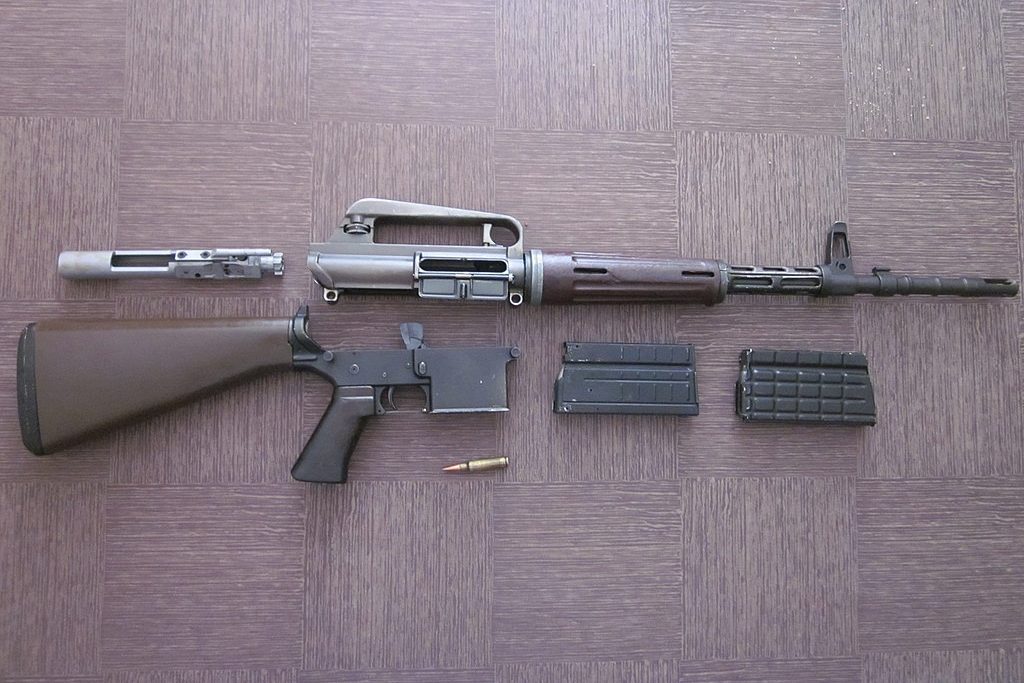For many firearm enthusiasts, the ability to customize and modify firearms is a crucial aspect of performance and usability. Sonoran Desert Institution (SDI) , which is accredited by the Distance Education Accrediting Commission (DEAC), provides specialized education that supports this growing field. However, traditional firearms may present challenges for individuals with mobility differences or other physical considerations that affect accessibility and functionality. Gunsmiths are at the forefront of designing adaptive firearms, integrating specialized features, ergonomic solutions and assistive technologies to ensure that every shooter can safely and effectively operate their firearm. As inclusivity in firearm customization gains momentum, professional gunsmiths play a vital role in creating accessible solutions tailored to the needs of individuals with physical limitations.
Adaptive firearms are designed to accommodate users with a range of mobility and dexterity needs, including limited hand mobility, reduced grip strength or restricted range of motion. These modifications enable individuals to maintain independence, participate in shooting sports and enhance self-defense capabilities. Whether addressing the needs of veterans, injured athletes or those with congenital conditions, gunsmiths are reshaping firearm customization to prioritize accessibility without compromising performance.
The Rising Demand for Inclusive Firearms
The demand for adaptive firearms is rising as awareness of inclusivity in shooting sports and self-defense expands. With advancements in gunsmithing techniques and technology, firearms can now be tailored to meet individual needs with greater precision. Organizations advocating for accessible shooting sports, along with firearm manufacturers recognizing the importance of inclusivity, have contributed to this growing sector.
Adaptive firearm solutions offer significant benefits for a wide range of individuals. Veterans and injured service members adapting to limb loss or mobility restrictions rely on custom modifications to maintain their independence and proficiency. Competitive shooters often require personalized adaptations to enhance performance, while individuals managing arthritis or muscular conditions benefit from ergonomic firearm solutions that reduce strain and improve handling. Hunting enthusiasts also benefit from custom modifications that enhance control and stability while maintaining accessibility and performance. As the demand for adaptive firearms continues to grow, gunsmiths are developing innovative solutions to meet the needs of a diverse range of shooters.
Key Adaptive Features in Gunsmithing
To enhance accessibility, gunsmiths utilize innovative designs and modifications that accommodate a variety of physical limitations. These adaptive features include custom grips and stocks, providing better control and stability for shooters with reduced hand strength or dexterity issues. Modified trigger mechanisms are designed to require minimal force, including electronic triggers and wider trigger guards for easier access.
Assistive charging handles and bolt releases enable smoother firearm operation for individuals with limited mobility while stabilizing braces help improve accuracy and comfort for shooters with limb differences. Advanced firearm technologies such as voice-activated and remote controls offer accessibility solutions for users with severe mobility impairments. By incorporating these modifications, gunsmiths ensure that individuals with varied physical abilities can handle, fire and maintain their firearms with ease and confidence.
Educational Pathways for Adaptive Gunsmithing
Becoming proficient in adaptive gunsmithing requires specialized training and expertise in firearm mechanics, customization techniques and assistive technologies. Educational programs in gunsmithing provide the foundational knowledge needed to develop accessible firearm solutions.
Programs such as the Certificate in Firearms Technology – Gunsmithing offer comprehensive training in firearm safety and compliance with accessibility regulations, precision machining and custom fabrication for ergonomic firearm components, modifications for trigger systems, grip adjustments and barrel customization, as well as hands-on experience in adapting firearms for various physical needs. By gaining formal education and practical experience, gunsmiths can specialize in accessibility-focused modifications, contributing to a more inclusive firearm industry.
The Role of Gunsmiths in Promoting Inclusivity
Professional gunsmiths are essential in advocating for and implementing inclusive firearm designs. Their expertise in firearm customization enables them to work with individuals to create personalized adaptations based on their specific physical requirements. They collaborate with rehabilitation specialists and accessibility experts to ensure optimal design solutions, develop and refine innovative firearm modifications that align with industry safety standards and educate fellow gunsmiths on the importance of inclusivity in firearm design. With the right training and commitment to accessibility, gunsmiths can help individuals with diverse physical needs engage in shooting activities safely and effectively.
The Benefits of Adaptive Firearms
Investing in adaptive firearm solutions offers several benefits for both individuals and the broader shooting community. Shooters with physical limitations gain greater control and confidence in handling their firearms, while customized adaptations ensure that firearms are easier to operate, reducing risks associated with traditional firearm designs. Adaptive firearms make shooting competitions more inclusive, allowing more individuals to engage in the sport. Gunsmiths craft modifications tailored to the unique needs of each user, improving comfort and performance.
Advancements in Assistive Technologies
As technology continues to evolve, gunsmiths are integrating cutting-edge assistive devices into firearm customization. Some of the most promising innovations include 3D-printed custom components, allowing for highly customized grips, stocks and trigger systems tailored to specific ergonomic needs. Sensor-based firearm adjustments use motion-sensing technology to assist shooters with limited motor function, while adaptive optics and targeting systems enhance accuracy for individuals with visual impairments or restricted movement. These technological advancements are revolutionizing the field of gunsmithing, ensuring that firearm accessibility continues to improve.
The Future of Inclusive Firearm Customization
As the movement for inclusivity gains traction, the future of gunsmithing will see continued advancements in adaptive firearm technology. Manufacturers, advocacy groups and gunsmithing professionals must work together to ensure that firearm customization remains accessible to all individuals, regardless of physical ability. By embracing innovation, education and a commitment to inclusivity, the gunsmithing industry can empower individuals to safely and confidently exercise their firearm rights, participate in shooting sports and enjoy their passion for firearms without limitations.
The evolution of adaptive firearms represents a significant step toward inclusivity in the firearm industry. Gunsmiths, manufacturers and educational institutions are working together to create solutions that make firearms more accessible for everyone. As technology advances and awareness grows, the demand for customized, ergonomic and assistive firearm modifications will continue to expand.
By prioritizing accessibility, the firearms community fosters a more inclusive environment where all enthusiasts can safely and effectively engage with their passion. Through education, innovation and commitment to inclusivity, the future of adaptive firearms holds limitless potential for enhancing the shooting experience for all individuals. Sonoran Desert Institute continues to support this evolution by providing specialized training and education for gunsmiths dedicated to advancing firearm accessibility.
The Importance of Industry Collaboration
Collaboration between gunsmiths, manufacturers and advocacy groups will be essential in driving further innovation as the industry evolves. Ensuring that firearm customization keeps pace with technological advancements will help expand opportunities for all shooters, reinforcing the importance of accessibility in every aspect of firearm design and use.
As advancements continue, the continued innovation in adaptive firearm technology will shape a future where accessibility is a standard consideration in firearm design. By fostering collaboration between gunsmiths, manufacturers and advocates for inclusive shooting sports, the industry can ensure that every shooter has the tools they need to participate safely and effectively. With a commitment to innovation and inclusivity, the evolution of firearms will continue to break barriers, empowering individuals of all abilities to engage in shooting sports and personal defense with confidence.

